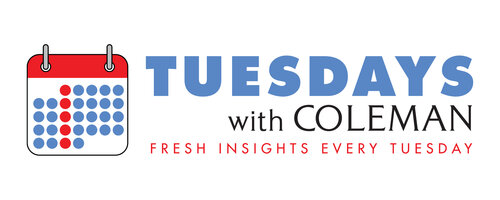
Last week, Meghan Campbell and I hosted the latest edition of our Coleman Insights “Ask Me Anything” webinar series and shared four scary research stories just in time for Halloween. I’ll recap them here, with some tips, tricks, and treats to ensure your outcome isn’t frightening.
Story #1: The Bad Ratings Story
When I was a program director, ratings day was my least favorite day of the month. If Arbitron (later Nielsen) was to drop the numbers at noon, my stomach would be tied up in knots at 11:45.
I consulted a station that was used to being in the top three of their target demographic. But this station was haunted by the ratings ghost, sinking the station well out of the top of their target and even last among the other stations in the market that shared their format.
We conducted a strategic Plan Developer perceptual study to determine how much of this nightmare was meter-based and how much was a real perception problem. In the end, it was a little of both. The station looked way better in the study than it did in the ratings, but we identified clear issues between how listeners perceived the station and how it was imaging itself and the music it was playing. We were able to offer some peace of mind that the radio station wasn’t completely broken. We offered strategic guidance to improve performance and the station returned to its perch at the top.
Story #2: The Focus Group of One Story
Without research to lean back on, it can be easy to rely on just one voice. This can be a super fan you run into at an event. It can be the boss’s spouse, who has lots of passionate opinions about the station. Or maybe it’s a loyal listener who regularly calls in to offer feedback.

Photo credit: Shutterstock/Drovnin
It’s simple to have the last thing you heard be most present in your mind. But this singular opinion may not reflect the opinions of your listener (and potential listener) base. In the absence of formal research, widen your net and don’t allow one person to influence important strategic decisions.
Story #3: The Short-Term Thinking Story
What’s the first thing you think of when you think of the recently departed and then brought back from the dead Bed, Bath & Beyond?
The 20% off coupon you’d get in the mail every month.
If the first thing you think about when you think of a brand is a coupon before what the brand actually stands for, that brand has a problem.

Tactical contesting can be valuable for sure, but it shouldn’t be at the expense of brand building. Make sure you’re not putting so much focus on contesting that listeners think of your station more for the next promotion than for the music and personalities that they should be thinking about.
Story #4: The App Story
A company we work with spent a lot of time and money on developing an app. In their minds, they shouted it to the rooftops, promoted it on air, and came into the study feeling there should be a lot of awareness and usage of the app.
But when we conducted the study, very few of their listeners were aware of it. And because of that, very few used it. This was frustrating because their digital offerings are awesome. Without research, this company may have charged ahead with a different strategy assuming listeners were aware. But with the benefit of research, they were able to focus their marketing message and target moving radio listeners onto their digital platforms.
